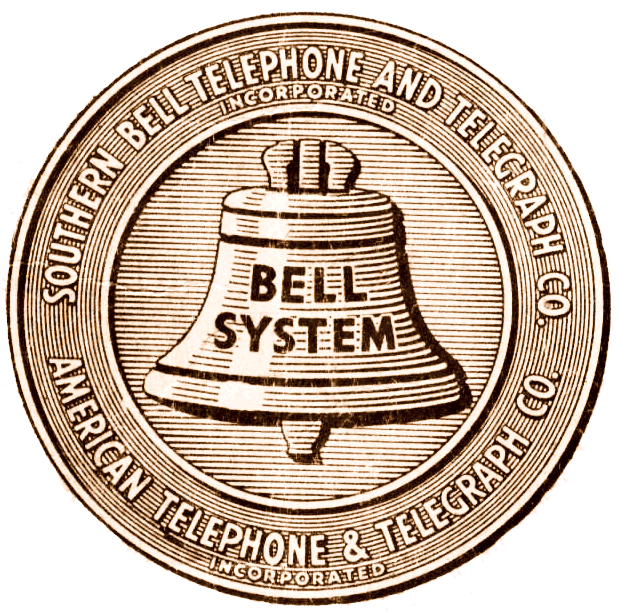I made two honest attempts to move completely away from the three Big Tech mobile monopolies (only two now, the dystopia keeps consolidating…): once with Symbian a long time ago, once with Ubuntu Touch.
Yeah, the phones do phone things. And if you squint hard enough at the Linux phone, the look and feel is almost as polished an experience as Android’s.
But here’s the thing: as soon as you need to make a payment with your bank’s app or you need to connect to your company’s Teams, you’re shit out of luck and you need a backup monopoly phone. That happens very fast and it gets tiring very quickly.
So I’m still on Android. DeGoogled Android (CalyxOS) but still code from the Google dystopia ultimately, because however much I hate Google, I’m also a practical man who would like to live his life somewhat normally.
That’s how entrenched the monopolies are: even when you’re as dedicated as I am to avoiding them, you can’t.
Hmm, I’m able to not use banking apps and whatnot on Android, so maybe I should look into it more.
If you can live without all the apps that only exist on Android or iOS, then a non-Android-non-iOS phone is a great choice. But it only takes one of those apps to be essential to you and your non-Android-non-iOS phone suddenly becomes a miserable experience on a daily basis.
You say you don’t need a banking app. That’s great.
Me, I currently live in a country where banks are entrusted by the government to handle secure authentication online. If you can’t use the mobile banking app, you can’t interact with social services, the local equivalent of the DMV, healthcare system, police… And you can’t book a train ticket, change the trash collection schedule, check if your parcel has arrived at the post office… Everything is online here, and without the banking app, your life becomes very very difficult. Not impossible, but not a pleasant experience.
And my company requires me to use the Teams app. In fairness, if I can’t use it on my phone or I refuse to install it on my phone on principles, they will readily provide me with a work phone - and a pretty nice one too. But that means I’ll have to carry two phones and, well… I just don’t want to do that.
So if a Linux phone works for you, more power to you. It’s just that you’re a minority of extremely lucky people for whom this arrangement is at all workable.
You can’t even set up signal without a monopoly phone… Well, there is way with rufus, I think, but it is not officially supported or recommended by signal
And whatsapp is a tricky one too.
You could try waydroid to get some APK installed, but it is not really with all that low spec linux phones that have a battery life of 1/2 day at most.
Why is there no high spec Linux phone 🥲 imagine, you could use the same brick forever, well, if all the drivers are added to the mainline kernel and are actively maintained to support kernel API changes.
what does CarlyxOS do for you, and could a fairly inept end user use it?
Not the original commenter, but just a +1 for Calyx from me.
It is very easy to install and it clears away a lot of low level Google tracking within the OS itself. It also comes with some nice additions like a firewall system for blocking internet access for that one google app (like keyboard or camera) you still need for whatever reason. Can’t recommend it enough.
does it require root?
no, it requires unlocking the bootloader in order to replace the OS completely.
Yes, an inept user can install it. I know because I am a fairly inept user 🙂
The key to a successful deGoogled OS installation is picking the most compatible phone possible for the AOSP flavor you want to run. If the phone is well supported and everything is reported to work, you’re unlikely to run into issues.
I chose a Fairphone 4 to run CalyxOS. Or rather, it went the other way in my case: CalyxOS was kind of imposed on me because my requirements for the phone was first and foremost not be Google Pixel phone (i.e. GrapheneOS was not an option) and good repairability second. CalyxOS is the only deGoogled AOSP distribution that runs on the Fairphone.
If you look at the instructions to install CalyxOS on the Fairphone 4, it’s nicely detailed and really simple. It went without a hitch for me. You can also install it on the Fairphone 5 and it looks simple enough too, but I haven’t tried it myself.
As to why I like it:
-
It emphasizes privacy over security (like GrapheneOS). Yeah it might not be quite as secure as GrapheneOS, but it’s more practical.
-
Enable MicroG and you basically have a normally-working phone. Yes, you still hit the Google server and that’s not great. But sadly that’s part of the compromises you have to make with your principles if you want to have a somewhat normal digital life in this day and age.
-
System-level integration with F-Droid and Aurora. The GrapheneOS people think it’s a liability. I think it’s a plus.
-
Comes with a work profile manager that works fine out of the box. You don’t need to install a third party manager like Shelter.
-
I know I’m gonna be shouted at for saying this, but… The Calyx Institute is always a little behind with Android updates unless they’re critical, and I find that to be a plus regardless of the OS you use - desktop or mobile: when your OS pulls updates as soon as they come out, it pulls screw-ups as soon as they come out too. CalyxOS’ delay in pushing updates means you let others play guinea pigs for you, and you only get updates after they’ve been thoroughly tested by a large number of users.
-
CalyxOS comes preinstalled with a nice set of apps. I especially like the Datura firewall: it lets you use sketchy app and deny them access to the internet. For instance, I use it to configure my TP-Link smartplugs with the TP-Link Tapo app without letting this hateful turd of a spyware app call the mothership. I don’t quite like how the SeedVault backup software follows the Android security model, because it prevents you from doing a true, full backup. But it does backups nicely and securely and that’s better than nothing. And the Calyx institute offers a free VPN: I only tried it once and it was kind of slow, but hey… it’s free.
-
Like I said, it runs on a non-Google phone. I hate Google with a passion and there was no way I was going to give them money to get a Pixel phone for the privilege of not being subjected to the Google surveillance. So most other deGoogled OSes weren’t even an option for me.
-
I’m just waiting for flawless Waydroid compatibility on Linux phones.
If I can run any Android app within Linux, I’m sold. basically wine and proton for Android apps that would be amazing.
It’s not like Wine at all actually. Waydroid is Android in a container with some software to make it integrate somewhat. Wine is actually a Unix implementation of the Windows APIs. Android translation layer is more like Wine and I have higher hopes for it.
I’m aware, I’m saying if it gets to wine/proton levels of compatibility, it’d be hype
😍there are people working on a android translation layer? This is awesome! Now we only need a supply of phones with hardware that can be used with open source drivers and not having like specs from 5 to 10 years ago…
I mean, if I have linux phone, I want mainline kernel
that sounds good to me
Sailfish OS?
Very nope, at least the last time I tried it about a year ago.
Some people in the Linux mobile community have yes, but only a few really.
I did like one of those phones, that had hardware switches for location and camera and microphone and network
Hardware switches was Purism but they allegedly took 4 years plus to deliver at times and didn’t honour refunds. Would not touch them. Pine64 delivered quickly. Never tried the pro, it was less mature from what I heard.
The problem with Pine is of course that they don’t even try to deliver on software, so their products are only available for end users if the community has made robust software.
Then again, Purism has also struggled to deliver on their promises. A phone made for Android but embraced by the Linux community is probably the easiest way to go.
https://pine64.org/devices/pinephone_pro/
I have a pine phone, I play around with it, I want it to be the replacement, but it does not ready today to be anybody’s daily driver. The ecosystem just isn’t mature enough. It’s promising though maybe in 5 to 10 years
deleted by creator
So if I have a Google business account I can’t see the drive for it? Even if I have full access to whatever drive settings might be needed?
deleted by creator
I use PostmarketOS on a Pinephone, not a hint of goolag. PmOS is extremely buggy, but I still prefer it to Android.
GrapheneOS.
Do you mean not using anything AOSP-based either? I know some people who use Linux phones
I tried SailfishOS, gave it about 5 years but in the end a combination of bad hardware options and small user base (leading to small number of high quality apps) led me back to Android (grapheneOS).
I tried ubuntu touch. Not having any banking app was a pain. I was not successful in using signal. WhatsApp is also very used around me. So I gave up.
I wanted to degoogle so I tried iOS. It is absolute garbage.
I think /e/OS, GrapheneOS and CalyxOs are the best to use right now. I might buy a fairphone with /e/OS despite the price when I will change phone, because I do not want to buy a pixel
deleted by creator
I was using two other systems in the past before giving up and using Android. The first was Meego by Nokia and Intel, on the Nokia N9. This is not an option anymore since Nokia switched to Windows Phone and then stopped altogether (current Nokia brand not being the same company). The second was Sailfish OS by Jolla. It can still be installed on some older Xperia phones and is a viable option. Though the development could not keep up with iOS / Android. There is some Android app compatibility. For a while I thought KaiOS might become an option, if scaled up a bit, becoming more feature rich. But I think cheap Android phones with Android One have taken that niche now.
Ha. Ha, ha. Hahaha.
They’ve got us by the balls.
Yes, yes they sure did win! Gotta hand it to them, absolute geniuses.
Honestly can’t find anything but iOS that is workable for my use case. Sadly
meaning iOS works better for you than android? why is that?
Well, apart from the fact that it’s NOT Google, (which I used for over a decade), the big selling point for a small business person is EMAIL. Apple do a good job of Email/Contacts/Calendar/File whereas Android struggles. Try accessing a third party Exchange email account on Android … yikes!
iCloud offers cheap reliable multi domain email hosting and the iOS Mail client sucks less than any other mobile email clients, at least in my experience.
I perceive Apple as, at least, a little more respectful of my privacy than Alphabet which is up there with Meta in profligate privacy abuse.
Another consideration is I can rely on Apple to keep incrementally improving devises/OS’s whereas Alphabet has become much less reliable in terms of introducing services then capriciously terminating those services. Every Android handset is a bespoke experience…
I use Linux (Debian Stable) on my desktop & BSD on my Servers.
I would love to use a mobile device running an open source OS such as Linux, it’s not viable yet.
Grab yourself a Satellite phone, done.









